In one-on-one counseling during rehab, you'll meet privately with a therapist for 45-60 minutes to explore your unique struggles, mental health history, and relationship patterns. Your therapist will use evidence-based approaches like CBT or DBT while guiding discussions that you ultimately lead. You'll work on practical skills through activities like journaling and mindfulness, collaborate on personalized goals, and address sensitive issues in a confidential setting. This individualized attention creates the strong therapeutic alliance that research shows vastly improves recovery outcomes and reduces relapse rates compared to group-only treatment models, and understanding how these sessions work within your thorough treatment plan can help you maximize their transformative potential.
Building Trust: The Foundation of Your Therapeutic Relationship

Effective rapport-building requires active, empathic listening and validation of your concerns. A strengths-based approach increases your engagement by focusing on your capabilities rather than deficits. As trust develops, you'll likely feel more comfortable disclosing sensitive information, enabling tailored interventions. Your therapist's consistency, respect for your autonomy, and transparent communication about treatment goals strengthen this bond over time, directly supporting your willingness to participate fully in recovery. Your therapist's awareness of your body language and anxiety indicators helps create conditions for you to engage more comfortably in sessions. Your perception of your therapist's respect serves as the strongest predictor of how you'll rate your overall therapeutic experience.
Core Therapy Approaches Used in Individual Counseling
Once you've established a trusting relationship with your therapist, they'll draw upon specific evidence-based modalities to address your unique needs. Cognitive Behavioral Therapy (CBT) remains one of the most widely used approaches in addiction treatment, with a reported efficacy rate of 79% across various mental health conditions. Your therapist may also employ Dialectical Behavior Therapy (DBT) to bolster emotional regulation and distress tolerance, particularly if you experience intense emotional responses. Psychodynamic therapy explores unconscious patterns rooted in past experiences, helping you connect historical trauma to current substance use issues. For trauma-specific concerns, EMDR processes distressing memories, while Acceptance and Commitment Therapy (ACT) promotes psychological flexibility through mindfulness and values-based action. Medication-Assisted Treatment may be integrated with counseling to provide a more holistic approach that addresses both the biological and psychological aspects of addiction. Humanistic therapy examines your personal worldview and emphasizes self-acceptance and improving self-esteem, making it particularly effective for addressing trauma and substance use disorders. These diverse therapeutic strategies are adjusted based on your specific needs and the goals you establish with your therapist. This personalized care guarantees your individual counseling targets the core factors maintaining your addiction.
What Happens During a Typical One-on-One Session

A typical one-on-one counseling session unfolds in a private, confidential setting where you'll meet with your therapist for 45 minutes to one hour. Your therapist will guide the discussion while allowing you to lead most of the conversation, exploring current struggles, emotions, and recent events. Individual counseling in residential rehab focuses on identifying root causes of addiction through examination of your mental health history, significant life experiences, and relationship patterns. In this collaborative space, you may also explore coping strategies and skills that can help manage triggers and stressors. Additionally, therapies in residential rehab often incorporate various modalities, such as cognitive-behavioral therapy and mindfulness practices, to enhance your personal growth. Through these therapeutic interactions, you can gain valuable insights on residential rehab therapy that may deepen your understanding of addiction and recovery processes.
Private therapy sessions incorporate practical activities like roleplaying, journaling, and mindfulness exercises to reinforce coping strategies. You'll collaboratively set recovery goals and review your progress regularly, with your therapist adjusting treatment methods as your needs evolve. Your therapist may employ evidence-based approaches such as Cognitive Behavioral Therapy, Dialectical Behavioral Therapy, or EMDR depending on your specific needs. The structured yet flexible format addresses both planned topics and urgent concerns, ensuring you receive personalized support throughout your recovery journey. Complete privacy during sessions enables you to ask questions freely and engage in open conversation without distractions. While group therapy sessions complement individual treatment in many rehabilitation programs, one-on-one sessions provide the focused attention necessary for addressing deeply personal issues.
The Unique Advantages of Private Counseling for Recovery
Understanding how sessions work provides important context, but recognizing the specific benefits of private counseling reveals why this format proves so effective for sustainable recovery. The confidential environment allows you to discuss sensitive issues like trauma, shame, and guilt without fear of judgment, lowering psychological barriers to honest self-disclosure. Your therapist tailors evidence-based techniques to your specific needs, addressing co-occurring disorders and adjusting strategies based on your progress. This personalized approach proves particularly valuable for trauma-informed care, as you process difficult experiences at a comfortable pace while developing resilience. Individual counseling may be the first place where you openly discuss why you started using substances, creating a foundation for deeper therapeutic work. The strong therapeutic alliance built through consistent one-on-one sessions serves as a foundation for long-term success, with research linking individualized counseling to higher recovery rates and reduced relapse compared to generic group models. Higher staff-to-client ratios enable therapists to respond more effectively to emergencies and provide the personalized attention necessary for addressing complex needs. While individual therapy provides personalized care, many treatment programs also incorporate peer support groups where assistance from individuals with similar conditions complements professional counseling.
How Individual Therapy Complements Group Treatment

Individual therapy and group treatment create a synergistic relationship that strengthens your overall recovery experience. In one-on-one sessions, you'll develop customized coping skills that you can then practice and refine during group interactions. Your therapist helps identify personal obstacles and triggers privately, which you can later problem-solve with group input for more applicable solutions. This combination not only fosters a deeper understanding of your individual challenges but also highlights the importance of peer support in rehab settings.
Private counseling addresses sensitive issues like shame or trauma, before you're ready to share them in group settings. This gradual approach reduces anxiety and fosters safer disclosure when you're prepared. Additionally, insights gained individually enhance your self-awareness, improving your ability to connect meaningfully with peers.
Your therapist integrates progress from both settings into personalized treatment plans, ensuring each modality supports the other while monitoring your advancement holistically. The confidential therapeutic environment encourages genuine openness and self-discovery that might feel too vulnerable to explore in a group format initially. Individual sessions also help you increase self-awareness about underlying motivations and behavioral patterns that influence your recovery journey. These sessions minimize distractions that may occur in group settings, allowing you to maintain focus on your specific recovery goals.
Evidence Supporting One-on-One Counseling Effectiveness
Research consistently demonstrates that one-on-one counseling produces measurable improvements in recovery outcomes. Meta-analyses show these interventions yield significant gains in symptom reduction, treatment retention, and overall wellbeing. You're more likely to remain engaged when sessions establish a strong therapeutic alliance within the first three to five meetings, this bond directly correlates with faster symptom relief and better adherence.
Individual therapy enhances your self-efficacy and empowerment, giving you confidence to navigate recovery independently. Studies confirm that personalized interventions produce the strongest results, particularly when paired with continuous progress measurement tools. You'll experience lower dropout rates and more persistent improvements in targeted problem areas.
Clients consistently rate one-on-one counseling as highly acceptable and useful, with satisfaction increasing when therapists adapt approaches to your specific needs and collaboratively set actionable goals. Qualitative research reveals that clients develop idiosyncratic models of change that reflect their unique understanding of therapeutic progress, which therapists should encourage alongside clinical frameworks. Evidence from systematic reviews indicates that one-to-one peer support interventions show modest positive effects on self-reported recovery and empowerment, though impacts on clinical symptoms vary across studies.
Frequently Asked Questions
Can I Request a Different Therapist if the Relationship Isn't Working?
Yes, you can absolutely request a different therapist if the relationship isn't working. Therapeutic fit is essential for progress, and facilities expect and support these requests. You can speak directly with program staff or your coordinator to arrange a change. It's helpful to reflect on specific concerns, whether it's communication style, approach, or comfort level, so you can communicate your needs clearly to your new therapist and establish a more effective working relationship.
Are Family Members Ever Included in Individual Counseling Sessions?
Yes, family members can be included in your individual counseling sessions when clinically appropriate and with your consent. Your therapist may recommend this to address relationship dynamics, improve communication, or resolve conflicts affecting your recovery. However, it's always your choice, family participation requires your agreement and is carefully facilitated to maintain therapeutic boundaries. If there's trauma or high conflict, your therapist will prioritize your safety and may suggest separate family therapy sessions instead.
How Do I Prepare for My First Individual Therapy Session?
You'll want to reflect on your main concerns and what you hope to achieve in therapy before your first session. Write down key symptoms, their duration, and any previous coping strategies you've tried. Bring necessary documents like insurance information and medication lists. Consider questions you'd like to ask your therapist about confidentiality and session format. Remember, feeling nervous is normal, therapy's a gradual process, and openness during that first meeting helps establish trust and direction.
Will My Therapist Share Information With Insurance Companies or Employers?
Your therapist won't share information without your written consent, except in legally required situations. HIPAA protects your privacy, insurers only receive minimal details like diagnosis codes and service dates needed for claims. Employers don't have access to your therapy records; confidentiality laws prevent automatic disclosure. You control what's shared by signing specific consent forms, which you can revoke anytime. If you're concerned about privacy, discuss it openly with your therapist, they'll explain exactly what information goes where and help you understand your rights.
What Happens if I Miss or Need to Reschedule a Session?
If you miss or need to reschedule a session, contact your therapist as soon as possible, ideally at least 24 hours in advance. Most practices allow rescheduling and may waive fees for emergencies or legitimate reasons. However, missed sessions without notice can disrupt your treatment progress and may incur charges. Your therapist will work with you to maintain continuity and rebuild momentum. Open communication is key to preserving trust and keeping your recovery on track.






